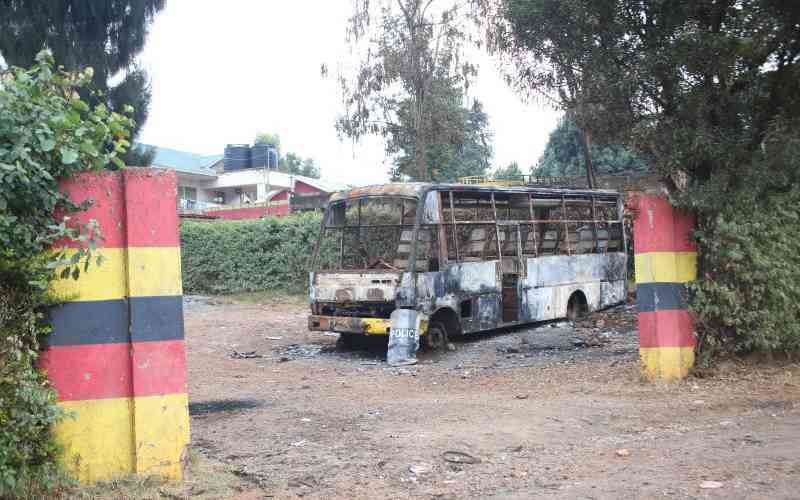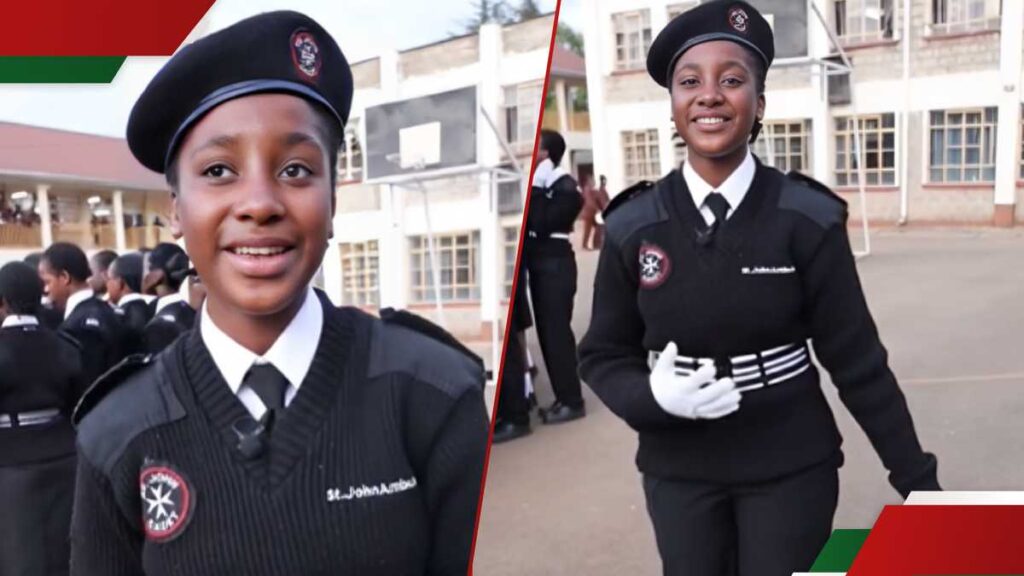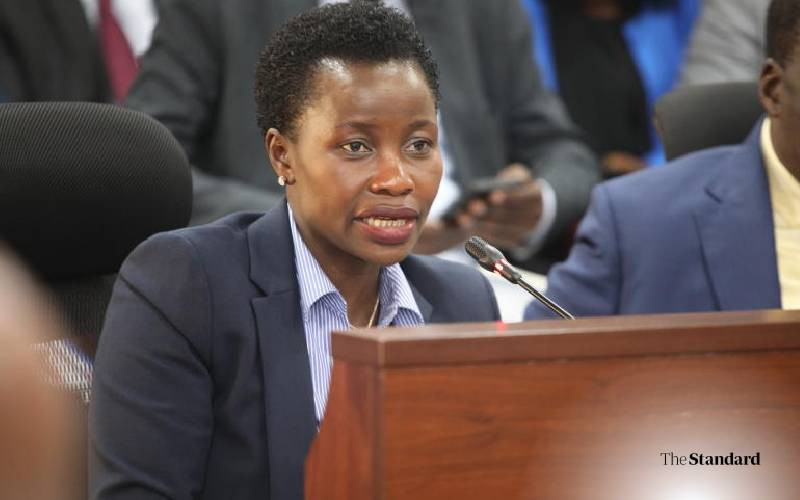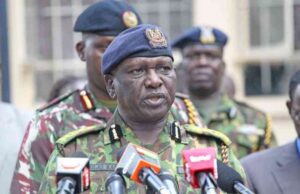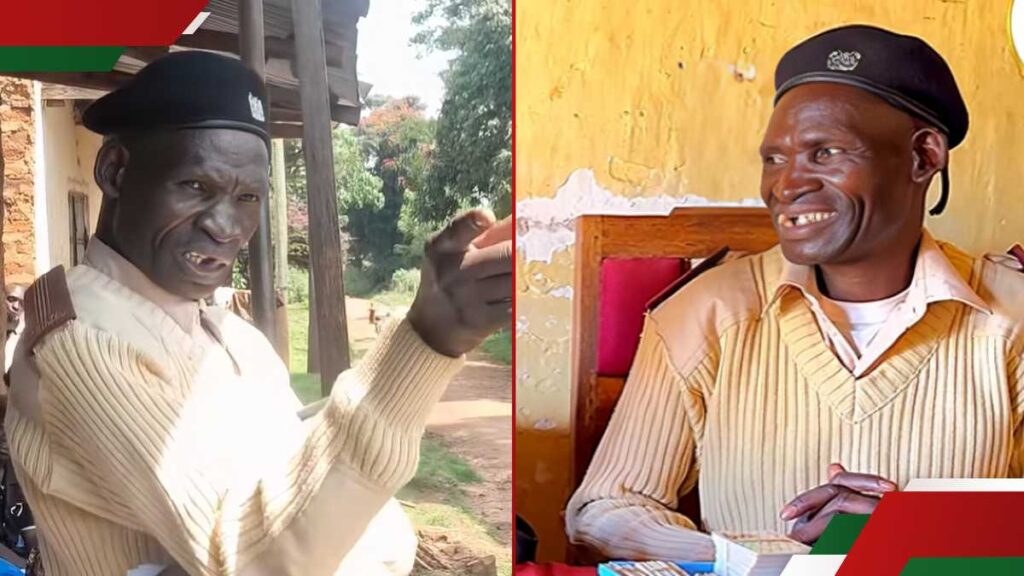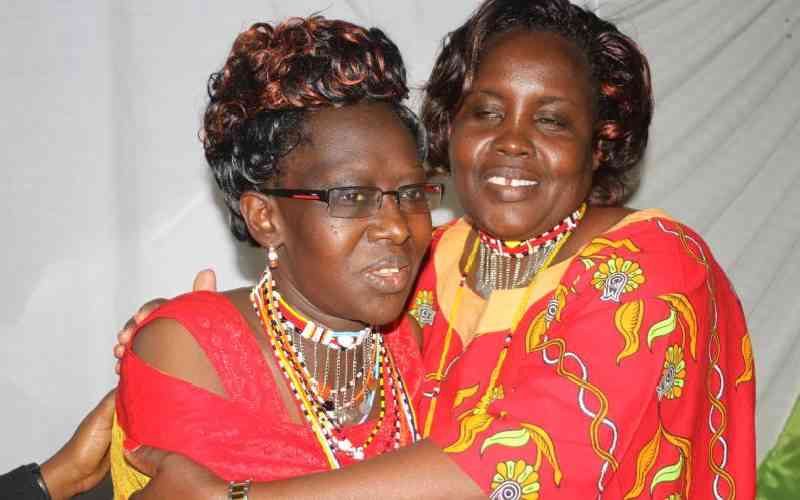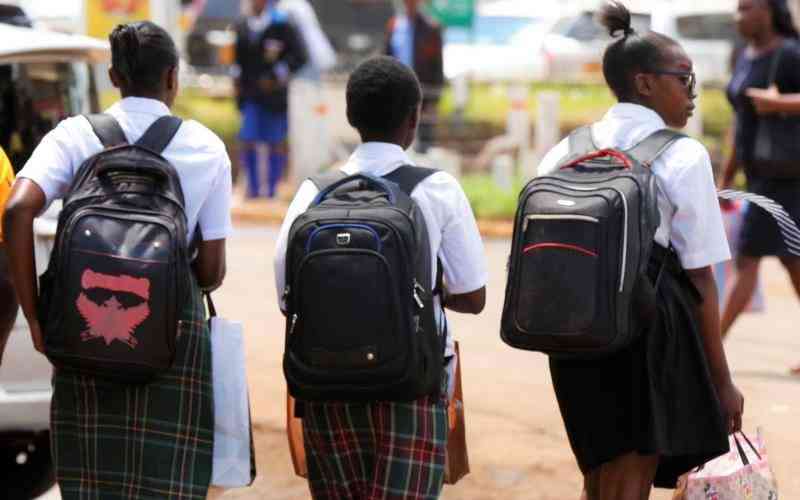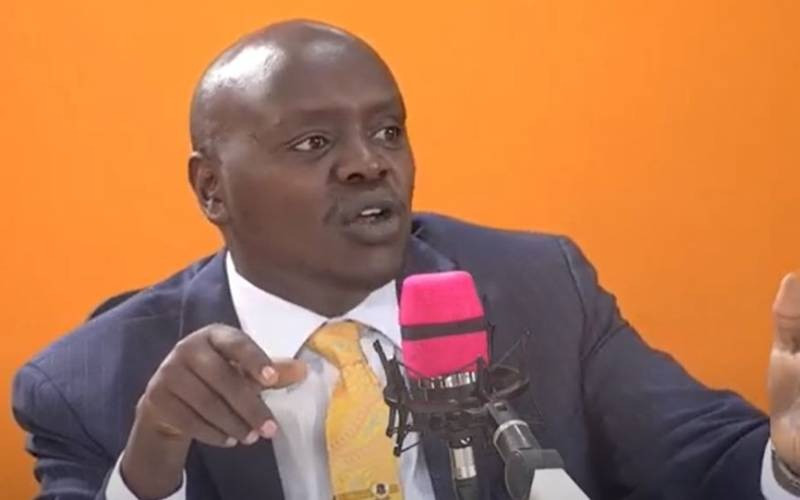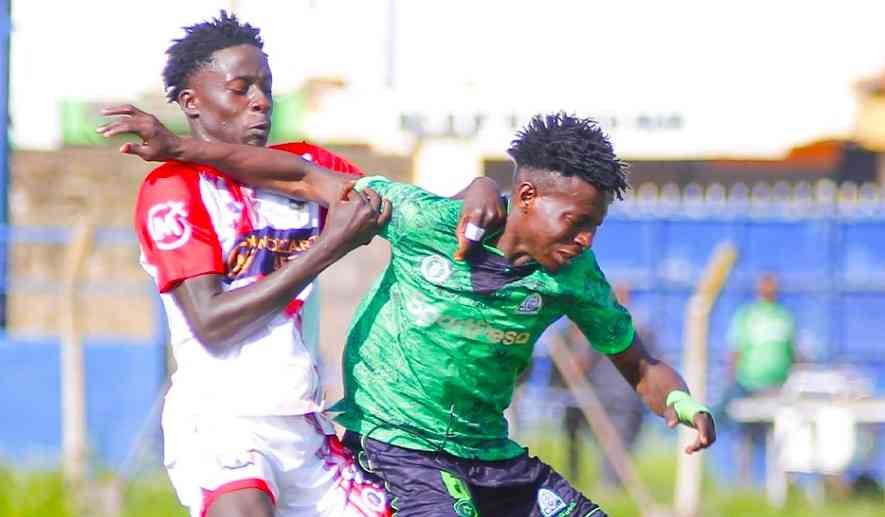The Kahawa Law Courts have freed at least 37 persons arrested in relation to protests on a Sh50,000 cash bail or Sh200,000 bond.
The Director of Public Prosecutions, Renson Ingonga had opposed the release of the group, which include former Deputy President Rigathi Gachagua’s allies, James Wanjiru and Wanjiku Muhia, as well as three Burundi nationals, claiming the police did not know their addresses.
The DPP also claimed there was a likelihood that persons who include teenagers would not show up in court as they had been charged with terrorism, which attracts hefty punishment.
The court heard that they were likely to interfere with witnesses, and their identities had not been established. The prosecution had also claimed that there was a likelihood that they would commit the same offence is released.
However, magistrate Gideon Kiage ruled there was no compelling reason for them to be behind bars as the trial proceeds. “In the end, I find and hold that the prosecution has failed to present any compelling reasons to justify their denial of bail and bond to the accused persons,” ruled Kiage.
The magistrate said that initially, the police had the 37 for a period of between 14 and 22 days, which was sufficient to conduct background checks and determine their residence.
At the same time, he said the investigators just dangled the claims that the 37 would interfere with witnesses without producing evidence whether there was any interference before, and when they were brought to court.
“Therefore, the mere fact that an accused person is charged with an offence, which carries a severe sentence, is not an automatic reason to deny bond. In the present case, the accused persons have been charged with the offense under the Prevention of terrorism Act.
“In the absence of any other ground in support thereto, it does not and cannot suffice to upset the presumption of innocence as guaranteed under the Constitution,” said Kiage.
He ruled that being charged with an offence was not itself a ground to deny a person his or her liberty. In this case, Wanjiru and Wanjiku were charged separately with the commission of a terrorism act. According to the charge sheet, they were accused of allegedly causing a serious damage to government offices and buildings- Kikuyu Probation offices, Kikuyu Law Courts, Kikuyu Sub-County Offices, Kikuyu Chief’s Office, Kikuyu Registrar of Persons’ Offices, Sub-County Education Office, Sub-County Accountant’s Office, Kikuyu Registrar of Lands Offices, Dagoretti Police Post and Kikuyu Deputy County Commissioners’ Office.
Others charged in a separate case in relations to the incidents, Daniel Wanyoike, George Kinyua, Alex Mwaura, Jackson Mumbi, Frankline Njoroge, Sharon Nyairo,Issack Solomon, Erick Njiiri, Innocent Shimimana, Lewis Nibobora, David Wambul, Erick Wairimu,Samuel Kuria, Marriam Ali, Jones Kiarie, Joseph Njoki, Issack Wambui, Lawrence Gichura, Benjamin Maroo, Everlyne Wairimu, Simon Gichohi, Brian Mika, Paul Njoroge, Peter Wairimu, and Newton Kanga.
The 25 were also accused of arson and malicious damage to property as alternative charges to the alleged commission of a terrorist act. On the other hand, Nzau Kaloki, Charles Musyoka, Allan Munene, Paul Munyao, Mwau Katungwa, Titus Maundu, Lawrence Ochieng and three Burundians- Jack Leterongos, Jackson Languris, and James Lesamana were accused of causing serious damage to Matuu Police Station, government vehicles and assaulting police officers manning them.
They were also accused of assaulting police constable Eliud Kiarie on his right middle finger using a stone, assaulting police constable Moses Mutuma on his hip using a stone, and assaulting police constable Faith Teteiya on the stomach using a stone.
The other charge was damaging the windscreen of two police vehicles, worth Sh50,000. Their lawyers, led by former Chief Justice David Maraga, Ndegwa Njiru, and Kirinyaga Women Representative Njeri Maina, argued that the terror charges were trumped-up to create fear and suppression.
Stay informed. Subscribe to our newsletter
Maraga said the majority of the persons in court were young persons who were either in their teens or unemployed. He said they were being charged for advocating their rights.
Njiru said the charges were illegal. After the ruling, the relatives of the accused persons broke the silence with uproars and subsequently sang the national anthem after the magistrate left the courtroom.








